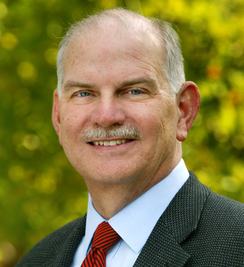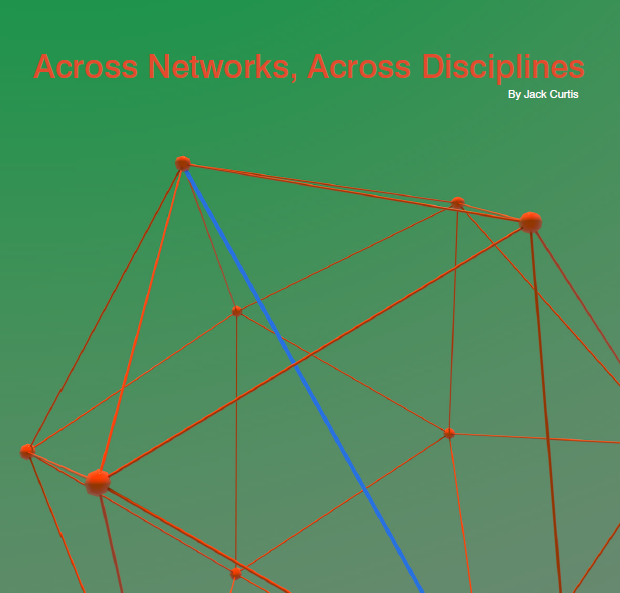When he surveys his academic, research, and teaching experience, Vince Poor, Dean of the School of Engineering and Applied Science at Princeton University, is quick to say he has been in the right place, at the right time, with the right skills.
He considers himself fortunate. which he expresses with a measure of amaze- ment and appreciation. Along the way, he has had inspiring mentors, helpful colleagues, and innovative students, and has been positioned to make significant contributions to the field of cellular communications from its onset.
As a child of the space age, a time when people who liked and excelled in mathematics were captivated by engineering, Vince saw his path early, and as an undergraduate at Auburn University, he was lucky to have a professor of electromagnetics, Edward Graf, who had the unique habit of employing undergraduates to work alongside graduate students in his lab. This experience introduced Vince to the world of scientific research. It also helped him to realize he liked the academic setting. "I admired my professors," says Vince. "To me, it looked like they had great jobs, that working with students was satisfying work, and that doing research was intellectually stimulating. I felt it was the thing for me."
When applying for graduate school in engineering, though, he pressed his luck. "I applied to only one school -- the wonderful engineering school at Princeton -- and I was accepted. I knew about Professor John Thomas's work in statistical communication theory and I wanted to go only to Princeton [to work with him]." Thomas was an inspiring mentor, who, Vince says, had "a very good knack" for working with his students and encouraging them to be creative; a foundation for which Vince is grateful and an influence that can be seen throughout his career.
Coincident with the start of Vince's career was the emergence of cellular communications technology. Sensing an opportunity, he quickly saw that fundamental communications methodologies could be useful in solving problems that arose in this burgeoning field. With amazing speed, the technology became both more sophisticated and widespread. The attendant challenges kept coming, and keep coming today.
"I have a core methodology in mind, and I tend to move into new areas when I sense how I could profitably apply that methodology to new issues," Vince says. "Cellular communications, one of the most important technologies of our time, and its dramatic changes, have spanned my entire career. And fortunately it's still going strong."
A defining feature of Vince's career has also been his recognition of technology in its larger, social context. "Technology doesn't exist in a vacuum; it's part of society," says Vince. "The most important issues we currently face -- energy, healthcare, security, water -- are technological in nature. Social, economic, and political issues are critical topics for people in the engineering field. Giving engineering students a wide-ranging perspective makes them more innovative and better able to collaborate with others from diverse disciplines and to assume leadership roles within complex organizations."
Vince began his career at the University of Illinois at Urbana-Champaign and joined Princeton in 1990. In 2000, witnessing the dramatic expansion of cellular communications, Vince created and taught an undergraduate course, "The Wireless Revolution: Telecommunications in the 21st Century," which explored wireless technology in a societal context. It quickly caught on, especially with liberal arts students. The course, which has responded to ever-advancing cellular technology and its ever-broadening impact, remains a very popular course at Princeton.
That course exemplifies one of the engineering school's core strengths -- the ability to bridge engineering, humanities, and the natural sciences. To enhance this ability, the school established the Keller Center for Innovation in Engineering Education in 2005, with Vince as its founding director. Fostering academic and experiential learning opportunities that span engineering and other fields, the center seeks to instill a broader understanding of the global, economic, environmental, and cultural forces that shape and are shaped by technology. Vince was named the Dean of the School of Engineering and Applied Science in 2006. Throughout his tenure, he has concentrated on further solidifying the school.s multidisciplinary ethos. "With breadth of learning being a basic element of the school's culture, students are naturally inclined to study and work across the disciplines," says Vince.
Vince has conducted landmark research in the fields of statistical signal processing, information theory, and stochastic analysis, and their applications in wireless communications and related fields. For example, by analyzing relay and interference channels, he has addressed the basic limits of cooperative communications and spectrum sharing. He has also explored the physics of the radio channel and its ability to provide security in data transmission and developed methods to enhance this capability.
His key current interests in social networks involve using models and analytical techniques to better understand social phenomena that have arisen in experimental studies of social networks as well as co-developing an online content trading system, dubbed "Sharing Mart" that is used locally at Princeton. He and his colleagues are using it to investigate user behavior in various sharing and content trading scenarios. Vince is also researching how advanced methods drawn from wireless networks can make the smart grid, the emerging technology for improving the distribution and consumption of electric power and integrating renewable energy sources, more efficient, resilient, and secure.
Highly regarded as a scholar and teacher, Vince is a fellow of the IEEE and past president of its Information Theory Society. He is also a past editor in chief of the IEEE journal, Transac tions on Information Theory. He is a member of both the National Academy of Engineering and the National Academy of Sciences, and he was recently elected a foreign member of the Royal Society of London. This coming fall, Finland.s Aalto University will confer his fourth honorary degree. In 2013, he added to his substantial list of publications, Principles of Cognitive Radio, coauthored with Ezio Biglieri, et al. It is the first book to address the core physical and networking principles of the emerging technology of cognitive radio, which has the potential to mitigate the problem of increasing radio spectrum scarcity through dynamic spectrum allocation.
Vince's career and achievements link him to LIDS, where he has served on its advisory committee since 2009. LIDS professor Dimitri Bertsekas was a colleague in the electrical engineering department at Illinois. One of his former students, Yury Polyanskiy, is the newest LIDS faculty member. "LIDS is a storied place," he says, "and has had a tremendous impact on my field. The advisory committee has enabled me to keep up with research at LIDS and get to know the faculty and students, while also learning about other committee members' institutions."
Throughout his career, Vince also has had the right attitudes, which took root not through good fortune, but through good practice. He looks to his students and fellow academicians for new and bold ideas. "I consistently learn a great deal from my colleagues, students, and post-docs. They help move my work forward. Plus other perspectives from various disciplines and settings also advance the process. Research, and learning from its findings, are collective endeavors."




